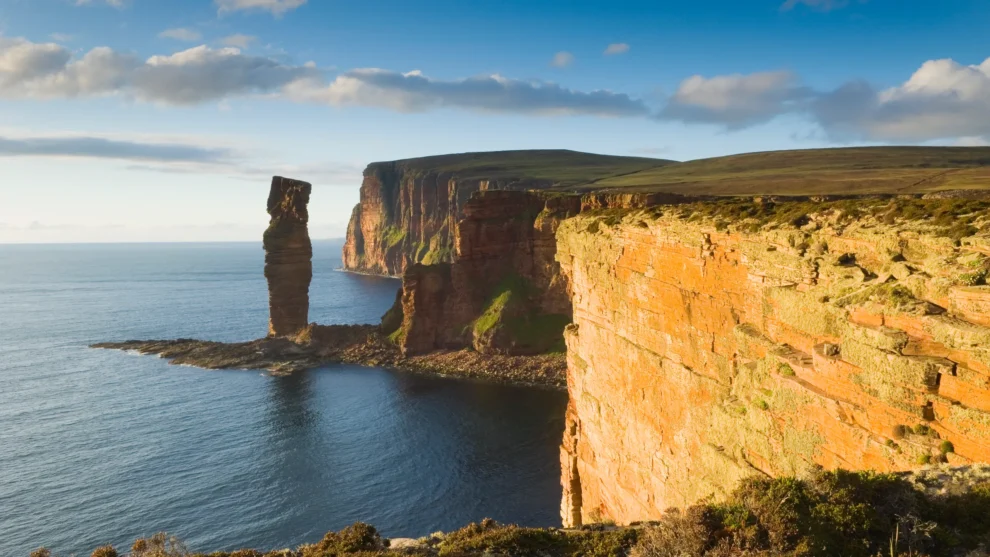In the face of funding frustrations, a crucial vote could flip the Orkney Islands from Scotland to Norway
By now, it’s safe to say that the UK’s 2016 vote to leave the EU has ushered in numerous unforeseen consequences. High on the list: reinvigorated calls for Scottish independence. Though the country’s dream of complete political autonomy has so far gone unrealized, one archipelago in Scotland’s Northern Isles is inching ever closer to not just breaking free from the UK and Scotland, but restoring a political allegiance severed in the 15th century.
Earlier this week, the Orkney Islands council voted 15 to 6 in favor of a proposal to begin looking into “alternative forms of governance” beyond their status quo position within the UK and Scotland. Several options are on the table, but the most drastic governmental reorganization could see Orkney become a self-governing territory of Norway.
Orkney’s ties to Scandinavia aren’t just geographical, but historical: The islands belonged to Norway and Denmark from 875 until 1472, when they were gifted to King James III of Scotland to secure his marriage to Margaret of Denmark. It’s a history Orcadians haven’t forgotten. As University of the Highlands and Islands professor Donna Heddle told Globe and Mail, many still celebrate Norway’s Constitution Day every May 17, and Norse first names like Erland and Thorfinn remain popular on the island.
Though Orkney’s cultural affinity for Norway is certainly salient, Orkney council leader James Stockan put forth the vote in response to modern political challenges. He told BBC News in the days before the vote that the islands have been “failed dreadfully” by both UK and Scottish governments, with the archipelago receiving less funding per capita than the Shetland and Western Isles. Leslie Manson, once the Orkney council’s deputy leader, told The Independent that the absence of funds needed to repair the aging ferry fleet that shuttles residents across Orkney’s islands (20 of which are inhabited) was “the straw that broke the camel’s back.”
Though perhaps the most alluring outcome for many of the roughly 22,000 Orcadians who call the islands home, swapping Scotland and the UK for Norway is not the only—or even most likely—option on the table. Orkney could follow in the footsteps of Guernsey, Jersey, and the Isle of Man by becoming a British Crown Dependency. This would remove Orkney from the UK and grant it a much greater degree of self-governance while still maintaining some loose ties to the British crown. Given that Orkney lies closer to Denmark than the Faroe Islands, a self-governing Danish territory suggests another possible Scandinavian path.
Regardless of the route taken, it’s likely that any significant change in Orkney’s political status would take time. As The Guardian puts it, such efforts would likely require “a combination of petitions, referendums and legislation” both in Scotland and the UK. There’s also the possibility that the whole affair is just a negotiation tactic to secure a greater share of funding. Given that Prime Minister Rishi Sunak’s office has now commented on the situation, Stockan’s gambit has at least succeeded in commanding attention from those who control the pursestrings.
Still, it only takes a passing glance at Orkney’s red, blue, and yellow flag to see that the archipelago’s ties to Norway run as deep as the North Sea that separates them. And when it comes to matters of national heritage, sometimes that’s enough to move mountains—or at least a very significant pile of governmental paperwork.
Source: Architecturaldigest











